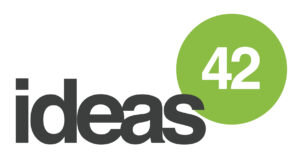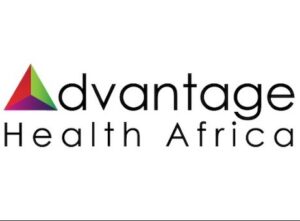Rockefeller Philanthropy Advisors is a philanthropic organization in pursuit of a just world by providing deep global expertise to make philanthropy more thoughtful, equitable and effective.
Kelly Diggins of Rockefeller Philanthropy Advisors spoke with Ashley Hopkinson on January 31, 2024. Click here to read the full conversation with insights highlighted.
Ashley Hopkinson: Can you start by introducing yourself and explaining the problem that your organization was created to solve as well as how you’re actively working to solve that problem?
Kelly Diggins: I am Kelly Diggins, an advisor with Rockefeller Philanthropy Advisors. Rockefeller Philanthropy Advisors alongside a few other funders created an initiative called Shifting Systems Initiative in 2016. The idea behind it was to really encourage funders to work in more collaborative ways by offering long-term resources to grantees in order to target systemic changes and accelerate scalable solutions that address global challenges.
Ashley Hopkinson: How did you come together under a shared vision?
Kelly Diggins: It started one-by-one. We had initial talks with Skoll about what we could really do since there had been a lot of discussion with grantees on what they needed from funders. At the time, there weren’t many voices from funders that were trying to encourage best practices across the field; the topic of systems change was only just surfacing in the philanthropic field. It wasn’t as widely discussed as it is now.
We were focused on how we can — as a group of funders — come together to better support grantees in doing work that addresses the complex, systemic issues that the world is facing.
There were a lot of practical elements that we needed to address. For example, sometimes grantees need to pivot their tactics last minute and foundation paperwork and budget line items don’t necessarily allow for that or aren’t as quick as needed when unlocking the funds. We also had to come to understand that when looking at systems change, the KPIs would be different; it’s not always linear where this work equaled to that outcome.
It was really about looking at leverage points and understanding that a mix of different things can be happening at the same time; for example, there could be policy changes that are taking place related to the area you’re working on. It can vary a lot and many things can contribute to creating systemic change. So, we needed to figure out how funders could be part of that collaborative support.
Ashley Hopkinson: What makes your organization distinct?
Kelly Diggins: I think what makes us distinctive is that the initiative is led by a Steering Group that consists of a group of funders asking questions and getting feedback on what we’re hearing on the ground. Because we work so closely with other funders and partners in the initiative, they really allow us the space to be flexible and pivot when we hear of new things emerging. It lets us go deeper into the work when further interview and research reveals there might be other elements that we want to add or contribute that are different from our initial plans during the onset phase.
Ashley Hopkinson: Because things change. That happens even in storytelling. I start out thinking I know what the story is and then halfway through I’m like, “I don’t think that’s the story anymore.”
Kelly Diggins: Yeah, exactly.
Ashley Hopkinson: Who would you say benefits most from the work that you do?
Kelly Diggins: Most ambitiously, I would say it’s the entire philanthropic field. We’re really trying to make some of these best practices more common practice within different foundations. Grantees would also be a part of that since they would be receiving the benefit of more streamlined practices and, maybe, funders would be more willing to listen to the experts on the ground by understanding how they’re measuring KPIs instead of that being pushed the other way. And if we get it right in systems change, there would be benefits to everyone whether it be reducing plastics or affecting education.
Ashley Hopkinson: Yeah, I see what you’re saying. It starts at the top, which could create downstream effects.
Kelly Diggins: That’s the hope. We are entering our new phase. Last year, we had an evaluation of the initiative and we’re now working with a strategic design to see where we can really focus and lean into during this next phase. We’re still working on that.
We haven’t finalized anything yet, but I would say a lot of our primary audience members are on different parts of the spectrum when it comes to discussing systems change, so we want to better understand what is needed for Boards and C-suites and come alongside them as they take on these practices and make it a cultural norm within different organizations.
Ashley Hopkinson: How does your organization measure success? How do you know that you’re advancing towards that success?
Kelly Diggins: Since it’s such an ambitious initiative that’s looking to change the philanthropic field as a whole, success to us is just seeing the contributions the initiative has made. For example, systems change is a lot more common of a term within philanthropy than it was when we set out. That’s something we feel very proud of.
There’s a lot of energy when we do events and workshops, so there’s a lot of anecdotal stories. One of our goals is to try to capture them all, but it can be hard to know everything that’s taking place. For example, we’ve heard that a foundation gives our reports to new employees to read when they’re starting so that employees are exposed to the best practices as funders and as partners and collaborators.
We’ve also heard that grantees whose work we’ve highlighted in some of our case studies have received additional funding after being featured in one of our reports.
In fact, a friend of mine was taking a class at UCLA and texted me to say that our initiative was talked about in his class. That was just happenstance; I can only imagine how many other places it’s being talked about. We just don’t hear about those stories, but I think all of those combined really show our successes.
Ashley Hopkinson: In the philanthropic space, what are some insights or lessons that others can take from your work? What are some valuable things you’ve learned from convening these groups and working with funders on these practices?
Kelly Diggins: One thing we have had to learn as an initiative is that a lot of our partners and funders may have different hypotheses on how to bring about systems change: which are the best levers, who are the audience for different elements, and how the philanthropic field can change its practices. Sometimes, we can move many directions and test many hypotheses because we get really excited and passionate about seeing what works. We really have to go back and remind ourselves who our target audience is and what our target approach is. Otherwise, we risk mission creep, so we need to get a little more focused instead of caught up in testing too many tactics or doing too many activities that aren’t necessarily complementary in moving forward.
Ashley Hopkinson: What’s one thing that you would say has worked really well?
Kelly Diggins: I would say our convening power is a great strength; we have a global reach. We’ve not only had events and workshops in the USA, but we’ve also done this type of work in countries like Kenya, India, Brazil, China, Colombia, and many others. We really try to get different partners and stakeholders in the room — that ranges from government entities, corporations with philanthropic arms, funders, beneficiaries, and nonprofits — to really discuss what they’re working towards, what tactics they’re employing, and what they need from different partnerships in order to address these systemic challenges.
Ashley Hopkinson: Bringing people together who wouldn’t otherwise get to connect in these kinds of spaces is really powerful. You mentioned that having too many tactics can sometimes be a challenge, but has there been anything that you’ve implemented that didn’t quite meet your expectations or didn’t work out as planned? What were some lessons that you learned from that?
Kelly Diggins: With some of these workshops, we have some engagement afterwards, but it’s a challenge to try to continue that engagement because everyone is spread out across the globe. Especially post-COVID, when more things are online instead of in-person, we really try to stay engaged with people who’ve participated in our programs.
But on the other side of the coin, we do feel that it just isn’t the same as the excitement and energy that you get in a room when these topics are discussed. Unfortunately, we can’t always travel everywhere, so we’re still working on how to encourage follow up, continue to see where people are at, and bridge the connections with those who’ve participated in the past.
It takes a lot of capacity — both time and financial resources — for this to work. We do see that our reports, workshops, and events have been valuable to the field, but we’re learning how to get more partners to engage and fund the work.
Ashley Hopkinson: A great thing about partnerships is that with having a shared vision, you’ll be able to get that momentum; people are mutually benefiting from convening. In terms of how you see the work growing and evolving, what would you say is your vision for how organizations will expand? How would you like to see funders be part of that deeper work?
Kelly Diggins: We would like to get more partners involved just to hear more about what we’re hearing on the ground, especially from partners from Europe and Latin America where they’re seeing different elements emerge. For example, in Latin America there are a lot more operating foundations. Since their foundations are set up differently, their work also looks different. It would be valuable to get some of those inside thoughts and connections.
Also, where could we go deeper instead of spreading out? Figuring out what areas we are best suited to go deeper into in our next phase is what we’re working on redesigning with our strategy consultant.
Ashley Hopkinson: What are some unique challenges for this specific field?
Kelly Diggins: Looking at the behavior of the philanthropic system, a lot of the traditions that funders and foundations use are so ingrained. We are working on introducing them to these best practices and also showing them how the work could become less burdensome. For example, there wouldn’t be as many reports or paperwork involved if they did multi-year grants.
So many funders do things out of tradition and the idea that that’s the way they’ve always done it. By breaking that cycle within those organizations, we can show them how best practices not only support them but support the grantees, especially if they’re focused on systemic change.
Ashley Hopkinson: Do you have a story of impact that you can share on the value of putting these best practices into place?
Kelly Diggins: We’ve written a number of case studies that highlight different models of funders supporting grantees and the benefits of donor collaboratives.. We are really just collecting the information then disseminating it to show the different kinds of practices. Our first report was really about how funders are either helping or hindering nonprofits based on their practices.
We’ve shown how if a nonprofit is working on such a big issue — like healthcare — multi-year grants help them budget for the future instead of guessing. Imagine if you’re trying to solve some issue in healthcare, it’s really hard to set your budget or really move the needle forward if you don’t know what funding you’ll be getting year by year, or if you’re going to get any funding again next year or not.
By having a longer term, flexible budgets that also support general operations, they can really create programs that help move their solutions forward and pivot when there are changes in policies or laws. This allows them to change directions in response to changing conditions in a timely manner instead of having to shut down their work or go back to their funders to try to explain their tactic and budget change hoping they’ll approve the new direction.
Ashley Hopkinson: How specifically is the initiative working towards systems change?
Kelly Diggins: For the initiative itself, it’s through the use of partnerships and collaborations that really spread the systems principles for philanthropic practices to change its behavior.
However, in the research we do and reports we disseminate, we also ask these exact questions of other funders and nonprofits. We’ve highlighted many of them who use all these approaches — mental models, technology policy, advocacy, and combinations of many things — and it shows how all are needed for the systemic changes. We see what levers hit at the same time or push the whole system and see how it can shift and move things to make progress.
Ashley Hopkinson: What do you believe is needed from other actors in the space to help this move along?
Kelly Diggins: For this to work, funders need to encourage other funders by being vocal about their own stories around why they’ve implemented these types of changes in their foundations, what practices they’ve employed in doing that, and how it’s helped not only their foundations but also their grantees. By sharing those stories more widely, I think it would really help encourage other funders to consider it, think about it, and even test it on their own portfolios. That would be really encouraging to see.
There’s also a lot of different levels of people even with staff within foundations. Some who work more closely with the grantees may be better able to see why these principles and practices should be implemented. They’re best able to understand the who and why of these principles not being implemented: what is the reasoning behind it and who is stating that reasoning?
It would be really helpful for us to understand where those conversations are taking place within the foundations. For example, just a couple of months ago, we came out with a report specifically for CEOs and C-suites to discuss systems change principles and why foundations should take it on. Because it’s more recent, we are hoping to hold events or webinars focusing on this report to see if the idea of changes coming from those leading the foundations can get more traction.
Ashley Hopkinson: What keeps you inspired to do this work? What makes you feel like it’s something that you want to continue to do? What excites you about it?
Kelly Diggins: For me, it’s when people in nonprofits are gracious enough to give us their time to share what’s working and what hasn’t been working as well as hearing about the work they’re doing and the type of work they want to do. It’s really motivating.
People are always so eager to share their work and talk about systems change at the different conferences I attend. We’re really big on crossposting, so we always encourage them to share a blog post through the Shifting Systems Initiative on Medium so we can really show the type of work — the good work — that is out there.
Click here to read the full conversation with insights highlighted.
Ashley Hopkinson is an award-winning journalist, newsroom entrepreneur and leader dedicated to excellent storytelling and mission-driven media. She currently manages the Solutions Insights Lab, an initiative of the Solutions Journalism Network. She is based in New Orleans, Louisiana.
* This interview has been edited and condensed.
Read about other social changemakers working in philanthropy.







